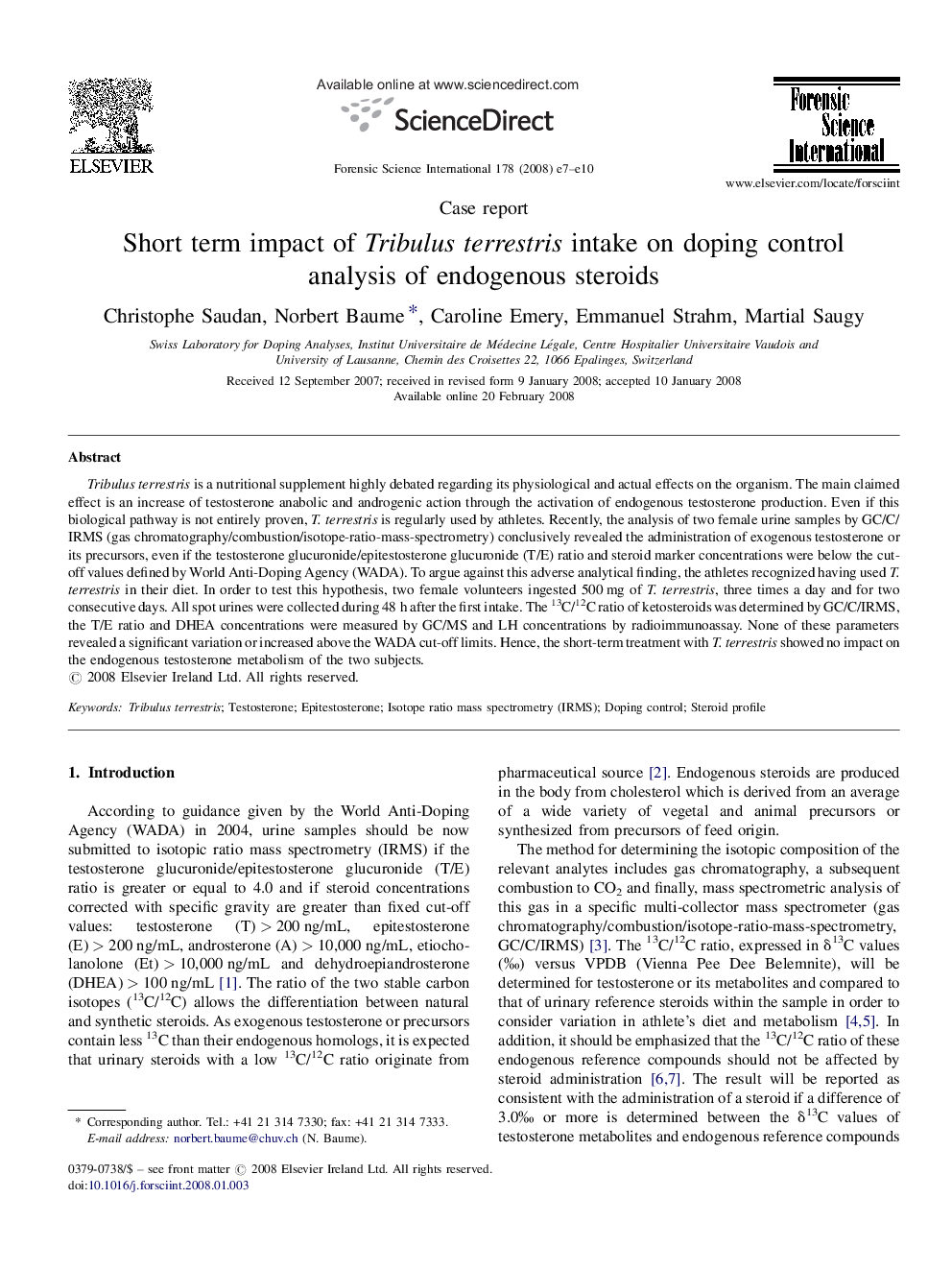| Article ID | Journal | Published Year | Pages | File Type |
|---|---|---|---|---|
| 97846 | Forensic Science International | 2008 | 4 Pages |
Tribulus terrestris is a nutritional supplement highly debated regarding its physiological and actual effects on the organism. The main claimed effect is an increase of testosterone anabolic and androgenic action through the activation of endogenous testosterone production. Even if this biological pathway is not entirely proven, T. terrestris is regularly used by athletes. Recently, the analysis of two female urine samples by GC/C/IRMS (gas chromatography/combustion/isotope-ratio-mass-spectrometry) conclusively revealed the administration of exogenous testosterone or its precursors, even if the testosterone glucuronide/epitestosterone glucuronide (T/E) ratio and steroid marker concentrations were below the cut-off values defined by World Anti-Doping Agency (WADA). To argue against this adverse analytical finding, the athletes recognized having used T. terrestris in their diet. In order to test this hypothesis, two female volunteers ingested 500 mg of T. terrestris, three times a day and for two consecutive days. All spot urines were collected during 48 h after the first intake. The 13C/12C ratio of ketosteroids was determined by GC/C/IRMS, the T/E ratio and DHEA concentrations were measured by GC/MS and LH concentrations by radioimmunoassay. None of these parameters revealed a significant variation or increased above the WADA cut-off limits. Hence, the short-term treatment with T. terrestris showed no impact on the endogenous testosterone metabolism of the two subjects.
